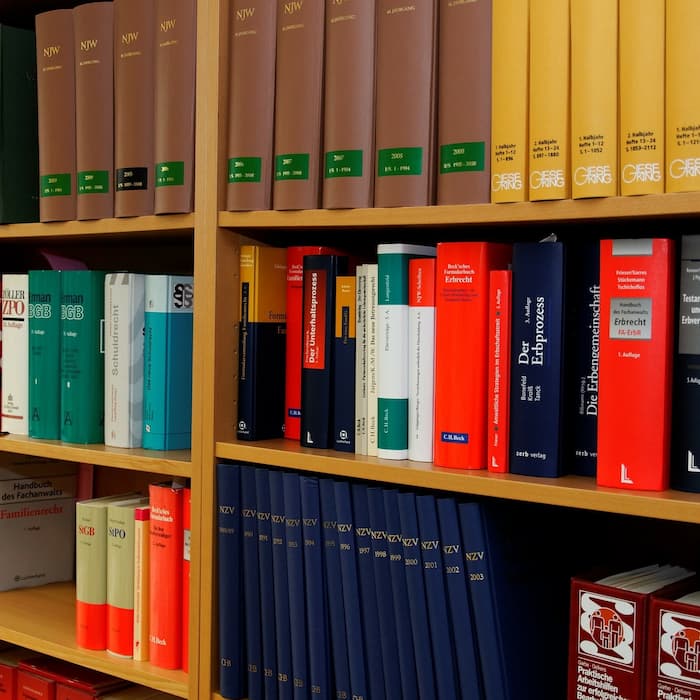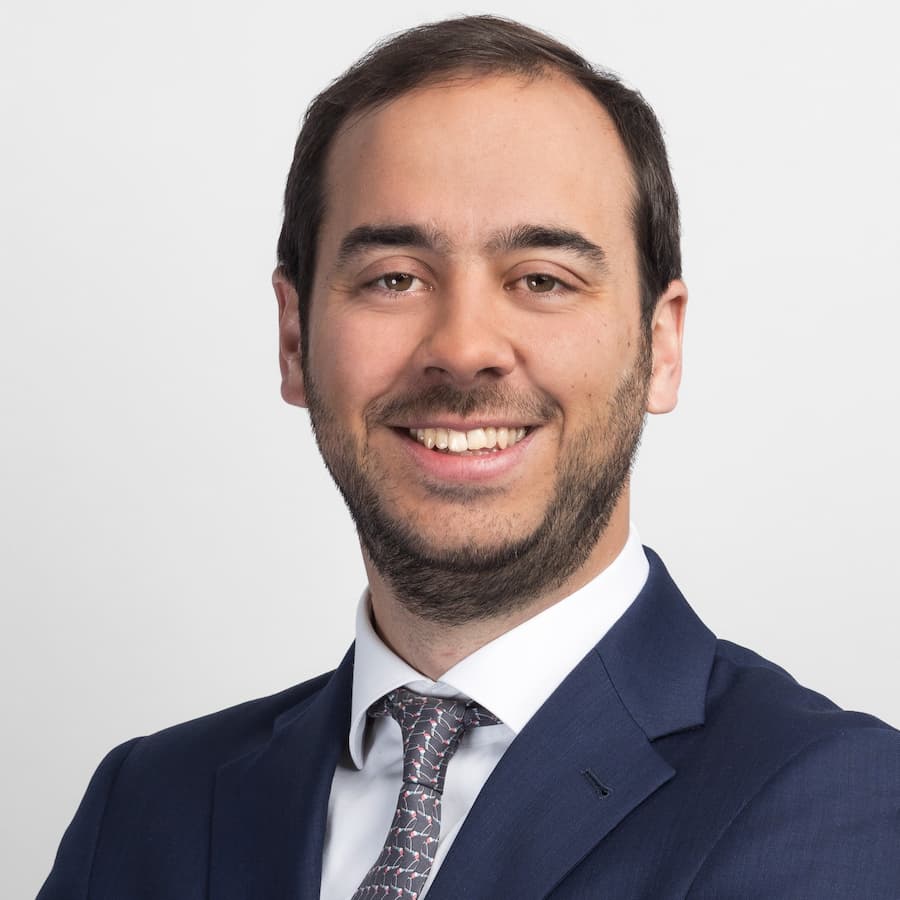Alt Investments
Investment Returns From Lawsuits – IVO Capital Partners Launches New Vehicle

Litigation finance is an area that is gaining traction in Europe and a French firm is rolling out its fourth fund that operates in this area. As well as reporting on a new fund launch, WealthBriefing interviewed the French firm about the asset class.
Paris-headquartered IVO Capital
Partners, has launched its fourth litigation finance
vehicle.
Called IVO Legal Strategies Fund IV it is targeting €150 million
($173 million) and aims to invest in cases in Europe and beyond
to meet the growing need for litigation funding in Europe, as
well as burgeoning investor demand for exposure to this asset
class.
The fund will be deployed primarily across continental Europe,
notably in France, the Netherlands, Germany, Spain and Portugal.
It will build investments in commercial disputes, arbitrations
and collective redress follow-on claims in the areas of
competition and data protection, based on rules in specific
jurisdictions.
“With over 11 years of experience investing in cases across
Europe, the UK and the US, we are uniquely positioned to
capitalise on the growing need for capital to fund meritorious
cases and we have already started to develop a strong pipeline of
investable claims,” Paul de Servigny (pictured below), head of
litigation funding at IVO Capital Partners, said.

Paul de Servigny
The firm, founded in 2012, aims to ride a rising wave of
litigation in Europe linked to competition law and general
data protection regulation (GDPR).
Litigation in Europe has been boosted by developments such as the
European Union Damages Directive, making it easier for alleged
victims of cartels and abuses of dominant positions to seek
compensation. GDPR rules on data have opened the route for
large-scale data protection claims, IVO Capital Partners said in
a statement.
Recent growth in demand for litigation finance across Europe is
also being driven by the implementation of the European
Representative Actions Directive (RAD) across EU member states.
The RAD, which was adopted in 2020, establishes a framework
for collective redress for consumers who have been harmed by the
same unlawful practice.
Group claims, often valued at hundreds of millions of euros,
require litigation funding to pay for legal fees and
disbursements associated with the legal action, particularly
against a backdrop of rising litigation costs, IVO Capital
Partners said in its statement. Globally, litigation spending is
growing from $279 billion in 2023 to an estimated $360 billion in
2028.
Since launching its first litigation finance fund in 2014, IVO
Capital Partners has raised and invested more than €200 million
across a portfolio of approximately 90 cases worldwide. IVO
Capital Partners is also an active member of both the European
Litigation Funders Association (ELFA) and the International
Litigation Funders Association (ILFA).
Interview
WealthBriefing also asked Paul de Servigny, head of litigation funding at IVO Capital Partners, about the fund, litigation finance and what’s important about the asset class.
Litigation finance has risen quite a lot in Europe but is it still some way off from matching what goes on in the US? Is there likely to be a bit of catchup between the two?
Litigation funding has expanded significantly across Europe over the past five years, with a steady rise in demand for funding. In contrast, the US and UK markets have slowed slightly after earlier periods of rapid and sustained growth.
At IVO Capital, we have seen a sharp increase in European cases, with our recent third fund having invested in 80% of Continental European cases, compared with less than 30% in our 2018 fund.
Over the next three years, the rise in European collective actions, follow-on and commercial litigation funding will start closing the gap with the UK, but Europe in general is still nascent compared to the US. Also, the values of cases are much smaller in Europe, which means that as an investor we will be able to fund more cases, which is helpful from a diversification perspective.
WB: litigation finance is seen as negatively correlated with, say, equities and bonds. Is that correct and can you provide some comments on that?
Yes, litigation finance is a highly uncorrelated asset class compared to liquid and other illiquid asset classes. Each investment follows its own timeline and results do not depend on microeconomic or macroeconomic factors.
This lack of correlation also helps investors to avoid ‘market timing’ risk and within the fund itself, there’s very limited correlation between individual cases, which further enhances diversification in terms of jurisdiction and types of claim.
Demand for litigation funding has been seen to increase in periods of economic turmoil as companies face increasing financial challenges and breaches of contracts that give rise to disputes.
WB: What sort of end-investors does your firm engage with and do they include wealth managers, family offices and private banks? What sort of conversations do you have with such investors?
Historically our investors were mostly family offices and some institutional investors. In our most recent fund, we saw a significant increase in investor appetite from wealth managers who were interested in the return profile and the uncorrelated nature of the asset class, and they represented more than a third of our investors.
The questions we typically get asked by prospective investors are what are the types of cases we invest in most, which countries we focus on, how large the portfolio of cases is likely to be, what returns investors can expect, the duration of the fund and the risks associated with investing in legal assets.
The fund has a broad investment mandate but is focused primarily on commercial litigation and arbitration, competition litigation where a company has abused its dominant position or acted in a cartel to the detriment of businesses and consumers, data privacy cases where companies have profited from data without the owner of the data’s consent, such as a data privacy case representing the entire population of Dutch users of TikTok whose data has been used unlawfully.
We also invest in cases involving consumer rights, such as the dieselgate legal action where we are seeking compensation for consumers who purchased vehicles equipped with emissions defeat devices. Competition, data-privacy, and consumer cases often benefit from regulatory findings, which strengthen these claims.
Typical investments in a case range from 500k euros to 5 million euros per case and our key focus is Europe, especially as the countries of the EU are introducing class actions mechanisms and case sizes in Europe are well-suited to a fund of our size, €150 million, that is seeking strong diversification.
We aim to invest in approximately 50–60 cases. Diversification is key to our investment strategy as it allows us to maximise the uncorrelated nature of the asset class ,which adds to the asymmetric returns that can be achieved over a wide variety of cases.
The targeted return for this new fund is a 14 per cent IRR for investors and the fund is structured on an 8-year basis as a closed fund with a 3-year investment period. The skill set needed to invest in this asset class is quite specialist and we benefit from an investment team that has extensive experience analyzing and investing in cases and with strong financial and legal backgrounds.
We are highly selective and with rising demand for funding across the UK and Europe, we expect the pool of investments presented to us to increase. At the moment we fund only one in every 10 cases that come across our desk.
WB: Please explain how your firm seeks to educate and inform the investment community about litigation finance and how it works.
As an asset manager active in this space since 2014 and regulated by the French Market Authorities, we are invited to speak at conferences and to host roundtables and of course we meet multi family offices, wealth managers and UNHWs regularly.
The asset class is still nascent but there is certainly much more awareness of the investment opportunity compared to when we launched our third fund and we expect our investor base to grow significantly with the launch of this new investment vehicle.
WB: To enter the fund, what is the minimum investment entry requirement?
IVO Capital Partners is an Alternative Investment Fund Manager regulated by the French Markets Authority (Autorité des Marchés Financiers) and the
fund is open to professional and qualified investors only with a minimum investment of 100k euros.
WB: What are the main negative risks for investing in this area that people should know about? Are there particular areas to do with liquidity that folk should know about.
The key risk associated with this asset class is if there are more losses than wins across the portfolio, however, we manage this downside risk with capital protection insurance.
Also, investor returns from litigation funding investments are lumpy, because they are dependent on case outcomes which are not predictable and duration can be longer than anticipated.
WB: Are there other points you wish to make?
Our view is that the European market for litigation funding presents a unique investment opportunity that also allows investors to achieve their ESG goals by investing in the rule of law and cases that provide access to justice for consumers and businesses who have been harmed by unlawful behaviour and poor corporate governance.
This is an important time for the asset class, given the positive regulatory developments at the EU level paving the way for more collective actions that require litigation funding, and the moderate investment per case across Europe compared to the US, that will allow us to deploy our fund across a diverse portfolio of claims with a primary focus on private enforcement following regulatory decisions.
Disclaimer: This information is for communication purposes
only and is not to be considered as an offer to purchase. Past
performance is not indicative of future results. Any investment
in unlisted products involves a risk of capital loss and
illiquidity. Under no circumstances do these materials constitute
a solicitation to purchase or subscribe. Persons not residing in
France must ensure that they comply with all applicable legal or
regulatory requirements.